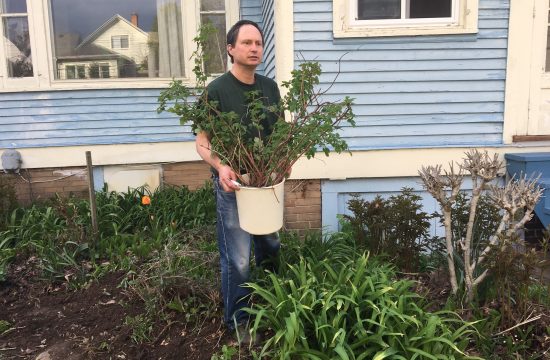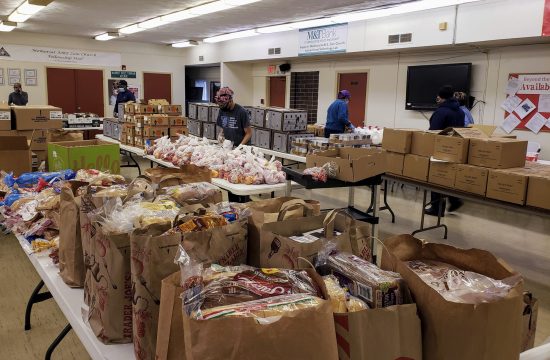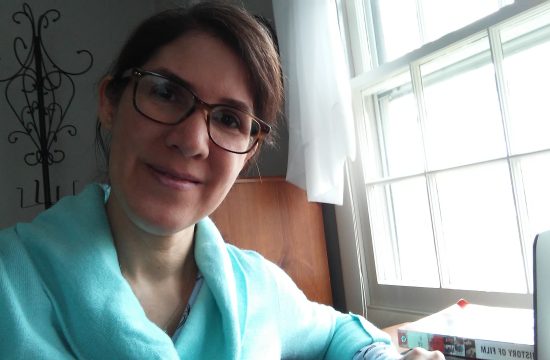by Michael Colotti
As the global pandemic of the COVID-19 virus continues to spread across the world, many universities have temporarily closed their campuses, compelling students to take classes online for the rest of the semester.
Richard Newman is a History Professor in the College of Liberal Arts at RIT. He gives his thoughts about how the pandemic has affected his teaching and personal life, as well as the RIT community.
Newman has taught at RIT for over 20 years. He was planning on continuing to teach his classes in person until the global pandemic was issued, forcing all staff and student off campus grounds. Newman was not surprised.

Photo: A. Sue Weisler
“The sudden schedule change at RIT was not that surprising given the warnings we had about the seriousness of COVID 19,” Newman said, “So, I was ready to switch all my coursework online.”
While Newman was prepared to switch his classes online, that does not mean the transaction was any fun, especially not being able to speak to his students in person.
“I already teach online classes every year, so the transition to online teaching is not that hard or problematic for me.” Newman stated.
“But to have all of my classes online all the time would be new and challenging. So much of my teaching revolves around question-and-answer sessions with students, where I can help them work through complex historical problems in class. That is much harder to do online. But if we have to adapt, then we will,” Newman said.
Newman also feels that this transition to online schooling has affected students the most, especially with them already having to deal with other issues outside of COVID-19.
“The most difficult thing about transitioning a class that is meeting in real time to online instruction is making sure that all students remain on the same page,” Newman said.
“In my American history class this semester, many students have sensitive or intermittent Internet connections, meaning that it has been more difficult for many of them to complete weekly assignments in a timely manner. Moving forward, it would be nice to know that all of my students have the same Internet connectivity on or off campus so that we can all work together at the same pace and speed in our online classes,” Newman said.
Newman also expressed that the biggest concern for student’s is that while classes have managed to tread on, graduation might not be so lucky.
“The most important impact on RIT life has been on graduation. I have never seen a graduation canceled or postponed. I think this is very hard on many graduating students, who want to celebrate this great accomplishment in their lives. I’m very sad that the class of 2020 has had to go through this, and in the large scheme of things, it’s not the worst thing in the world. But I hope that RIT does something special for this special class of graduating students,” Newman said.
As both students and staff continue to adjust to life restrain in their homes, they also have had to deal with issues outside of school and work.
“The pandemic has affected my family in several ways. For one thing, I have not been able to visit family members who live out of town and out-of-state, and they have not been able to come to Rochester, even though important things have happened in our lives,” Newman said.
“Many of our standard routines have changed. My family has stocked up on food and supplies in case any of us get sick and we only go outside on a daily basis to exercise, walk the dog and do yard work. I have family members in various risk groups, and I want to make sure that I take all the precautions when going out, so that I don’t impact their health adversely. We have taken all of the self-distancing warnings very seriously and that means staying home a lot. But we’re doing okay so far,” Newman said.
Newman feels that RIT has handled the situation well and is curious to see how both students and faculty will continue to be impacted by the pandemic and onwards.
“I’m glad that students, faculty and administration have pivoted so well over the past several weeks,” Newman said. “But over the next year, I’m not sure if everyone at RIT is ready for long-term social distancing policies (for example, having as few people as possible in classroom settings). It will be really interesting to see what happens this fall.”







